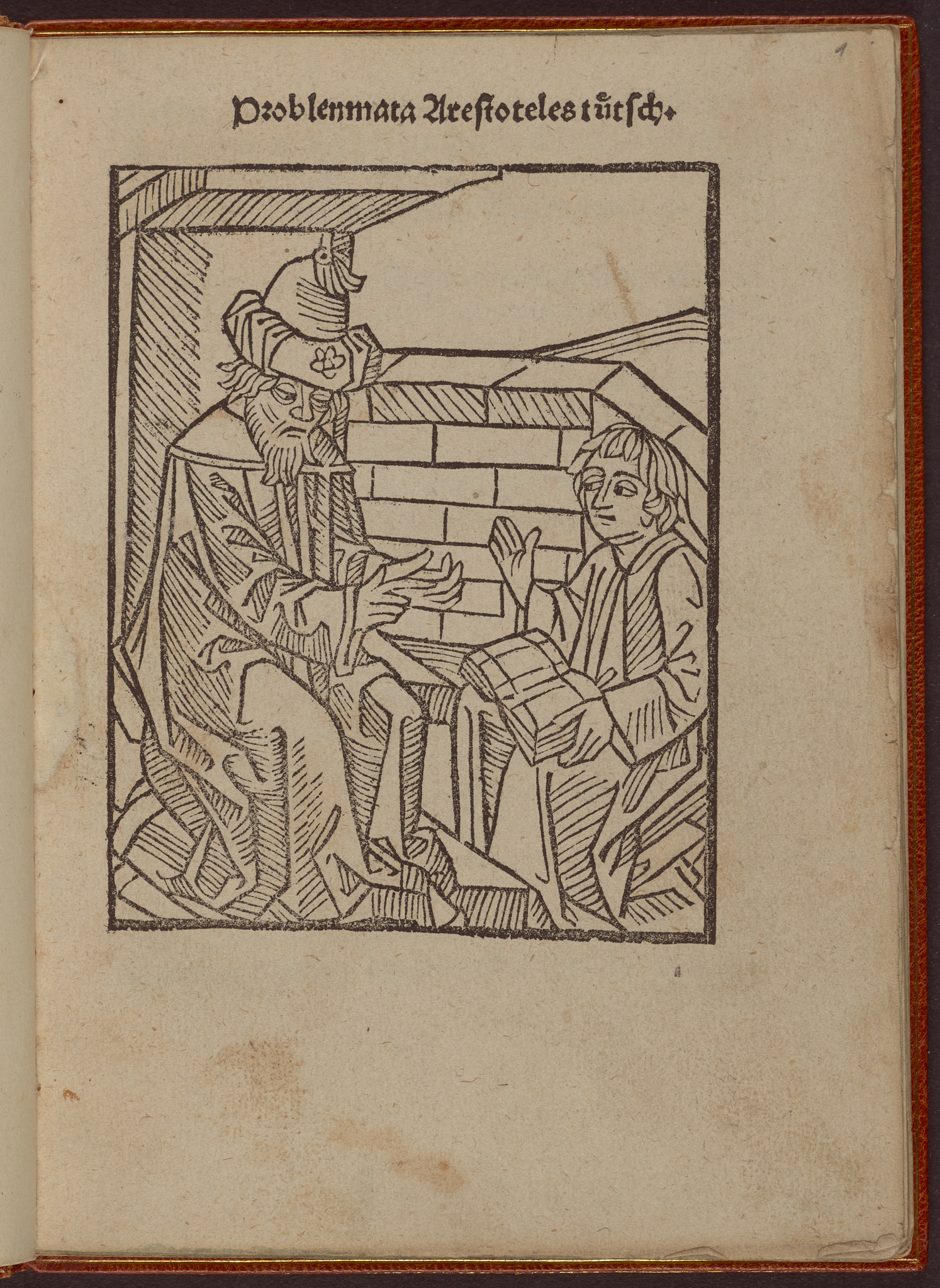XO30 Problenmata Arestoteles tütsch

Full description
Problenmata arestoteles tütsch (Augsburg: Bämler, 1493)
Penn Libraries, Kislak Center for Special Collections, Rare Books and Manuscripts, Inc A-1038
This text, a "tractate of various questions on human and animal nature and characteristics, in Latin called Problemata Arestoteles, and of other masters of nature as you will find below", mirrors the pseudo-Aristotelian Problemata in content and structure: it compiles questions about human and animal bodies and other natural aspects and the corresponding answers, with references to different authorities - mostly Aristotle, but also e.g. Galen (129-ca. 216 CE), Boethius (d. 524), Avicenna Ibn Sina, and Albert the Great (d. 1280). The Renaissance saw fundamental changes in the creation and distribution of written works. The development of printing allowed for a faster and broader distribution of books. This favored a wider circulation of less technical philosophical texts in vernacular languages. The Problenmata Arestoteles tütsch represents this by synthesizing different philosophical sources under the authoritative umbrella of Aristotle into a German version available to lay people. The title page, featuring an old man (likely Aristotle) teaching a young pupil (likely Alexander), also elevates the Philosopher's teaching as doctrines worthy of a king.
Sarah Marie Leitenberger
Comments
to view and add comments.
Annotations
No one has annotated a text with this resource yet.
- typeImage
- created on
- file formatpng
- file size5 MB


